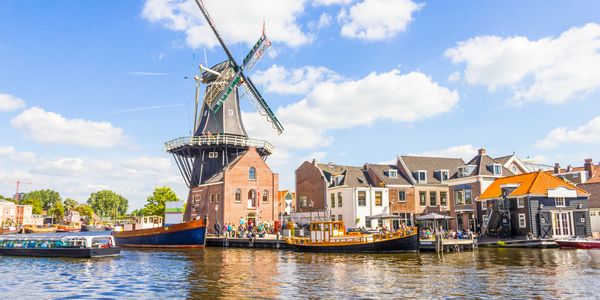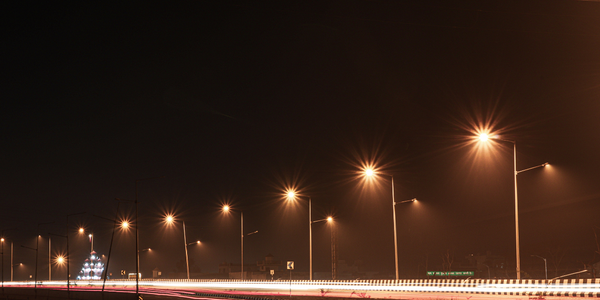公司规模
Large Corporate
地区
- Africa
国家
- Kenya
产品
- IBM StreetSense
- IBM Bluemix
- IBM Cloudant
- IBM Internet of Things Foundation
- IBM InfoSphere Streams
技术栈
- Cloud Computing
- Internet of Things
- Real-time Analytics
- Mobile Applications
实施规模
- Enterprise-wide Deployment
影响指标
- Cost Savings
- Customer Satisfaction
- Productivity Improvements
技术
- 分析与建模 - 实时分析
- 网络与连接 - 蜂窝
- 平台即服务 (PaaS) - 连接平台
适用行业
- 城市与自治市
- 运输
适用功能
- 物流运输
- 维护
用例
- 车队管理
- 远程资产管理
- 交通监控
服务
- 云规划/设计/实施服务
- 数据科学服务
- 系统集成
关于客户
内罗毕市县是世界上发展最快的城市之一内罗毕的管理机构。由于城市发展迅速,该市的系统和基础设施面临越来越大的压力。据估计,由于交通拥堵导致生产力下降、燃料消耗、交通事故、空气质量等诸多问题,内罗毕每天的损失高达 100 万美元。该市最近投资 300 多万美元购买新的垃圾收集车,以改善其垃圾管理流程。然而,由于道路状况和交通状况不佳,新卡车难以实现该市所期望的垃圾管理效率改进。
挑战
内罗毕是世界上发展最快的城市之一,但由于道路状况和交通状况不佳,该市在管理垃圾车车队方面遇到了困难。该市最近投资了 300 多万美元购买新的垃圾收集车,但垃圾管理效率的预期改善并未实现。该市需要一种经济有效的方法来获取有关道路和交通状况的数据,而不需要传统解决方案的投资和维护成本。
解决方案
IBM Research – Africa 的移动团队在该市的一些垃圾收集车上安装了改装的智能手机。当垃圾收集车在城市中行驶时,手机的传感器会将有关每辆车的位置、速度、加速度和振动水平的数据传送到云端的 IBM 分析解决方案。这些数据由一款名为 IBM® StreetSense 的定制开发应用程序收集。IBM Internet of Things Foundation 提供了智能手机和 IBM InfoSphere® Streams 之间的接口,可以实时分析车辆的位置和停车原因。数据存储在 IBM Cloudant® 数据库中,并使用 IBM Bluemix™ 将分析结果传递给县政府的用户。
运营影响
数量效益

Case Study missing?
Start adding your own!
Register with your work email and create a new case study profile for your business.
相关案例.

Case Study
Turning A Stadium Into A Smart Building
Honeywell created what it called the “intelligent system” for the National Stadium in Beijing, China, turning the venue for the opening and closing events at the 2008 Summer Olympics into a “smart building.” Designed by highly controversial artist Ai Weiwei, the “Bird’s Nest” remains one of the most impressive feats of stadium architecture in the world. The 250,000 square meter structure housed more than 100,000 athletes and spectators at a time. To accommodate such capacity, China turned to Honeywell’s EBI Integrated Building Management System to create an integrated “intelligent system” for improved building security, safety and energy efficiency.
.png)
Case Study
Smart Street Light Network (Copenhagen)
Key stakeholders are taking a comprehensive approach to rethinking smart city innovation. City leaders have collaborated through partnerships involving government, research institutions and solution providers. The Copenhagen Solutions Lab is one of the leading organizations at the forefront of this movement. By bringing together manufacturers with municipal buyers, the Copenhagen Solutions Lab has catalyzed the development and deployment of next-generation smart city innovations. Copenhagen is leveraging this unique approach to accelerate the implementation of smart city solutions. One of the primary focus areas is LED street lighting.

Case Study
Airport SCADA Systems Improve Service Levels
Modern airports are one of the busiest environments on Earth and rely on process automation equipment to ensure service operators achieve their KPIs. Increasingly airport SCADA systems are being used to control all aspects of the operation and associated facilities. This is because unplanned system downtime can cost dearly, both in terms of reduced revenues and the associated loss of customer satisfaction due to inevitable travel inconvenience and disruption.

Case Study
IoT-based Fleet Intelligence Innovation
Speed to market is precious for DRVR, a rapidly growing start-up company. With a business model dependent on reliable mobile data, managers were spending their lives trying to negotiate data roaming deals with mobile network operators in different countries. And, even then, service quality was a constant concern.

Case Study
Buoy Status Monitoring with LoRa
The Netherlands are well-known for their inland waterways, canals, sluices and of course port activities. The Dutch Ministry of Infrastructure indicates that there are thousands of buoys and fixed items in and near water environments that would profit from IoT monitoring. One of the problems with buoys for example, is that they get hit by ships and the anchor cable breaks. Without connectivity, it takes quite some time to find out that something has happened with that buoy. Not to mention the costs of renting a boat to go to the buoy to fix it. Another important issue, is that there is no real-time monitoring of the buoys at this moment. Only by physically visiting the object on the water, one gains insight in its status.




